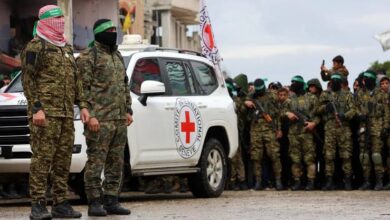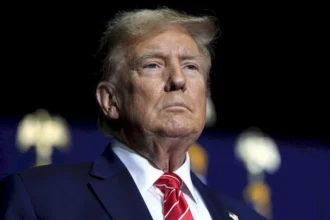Qatar’s role and Israel’s military freedom of action in Gaza on agenda at US‑Israeli summit; Trump says plan not just about Gaza, aims for broader regional peace
Al-Khamisa News Network - Gaza

Political circles in Israel and the United States are awaiting the summit on Monday evening at the White House between US President Donald Trump and Israeli Prime Minister Benjamin Netanyahu, amid signs that the gap over the plan to end the war in the Gaza Strip is narrowing.
The newspaper “Yedioth Ahronoth” said the talks will focus on Qatar’s role in the post-war phase, as Doha seeks to play a leading role in rebuilding the Strip while Israel works to limit its influence there. The paper said a preliminary settlement on the matter was reached yesterday.
The Israeli side also insists on including a clause that would give its army freedom to operate inside Gaza if Hamas moves to rebuild its forces or store weapons, a demand Tel Aviv considers necessary to preserve its military objectives.
Last night, Netanyahu and Strategic Affairs Minister Ron Dermer held a lengthy meeting in New York with US administration envoys Steve Witkoff and Jared Kushner, where progress was made on most contentious issues, including the “21-point” plan to end the war and secure the return of the hostages.
According to Hebrew Channel 12, Netanyahu accepted the new formulations proposed by the US side, which narrowed the gaps, while the issues of Palestinian Authority participation in governing Gaza and disarming Hamas remained under discussion.
A senior White House official said after the meetings that the United States and Israel are “very close to an agreement,” but stressed that completing the deal depends on approval by Hamas, which has not taken an official position yet.
The Netanyahu-Trump meeting program is scheduled to begin with a reception at 6:00 p.m. Israel time, followed by a closed-door meeting in the Oval Office and a working lunch, and will conclude with a joint press conference at 8:15 p.m.
In remarks to Reuters, Trump said he had received “positive responses from leaders of Israel and Arab countries” regarding his plan, asserting that its aim “is not limited to Gaza alone but includes establishing a broader peace in the Middle East.”





